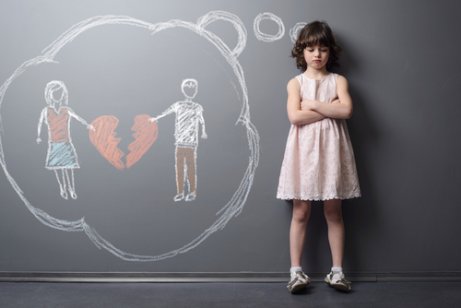

The fact that family relationships were grounded in reality played a crucial role in their ability to bond through adversity and storms. Life was spontaneous, conversations were deep, and the family bond was very strong. Four decades ago, the parental role in raising children was minimal. Parental care entails additional responsibilities in the present age. Phubbing as a threat to the deep family bond
Family disintegration how to#
This calls for better preparedness of the parents on how to safeguard the families as a place of empowerment. The bricks of emotional fences created around the individualistic world of the screen age generation need to be carefully and empathetically demolished. Strict boundaries created through ‘likes’ and ‘dislikes’ continue to drive family relationships to emotionally disintegrated individuals living together. This threatens the free-flowing communication in the family. The heightened individualism juxtaposed with the sense of a new understanding of family, that is, a family lived together rather than a family bonded together, has become a new normal. Various psychological limitations have emerged as the crippling outcome of phubbing among the late Millennial to Alpha generation. Slipping into a scary understanding of family Therefore, the role of the cyber world should be controlled at home, and because phubbing is a social disorder, the home should be a place to put it right. Growing up becomes accidental and prone to numerous emotional setbacks when the family fails to recognize its role in assisting the young.

And the social unit that can provide a healing environment is the family. This has left the recent generation with inadequate coping mechanisms, crushing loneliness, and social exclusion. Generation Alpha (people born after 2010) is popularly known as the screen age generation as communication and relationship, agreement and disagreement, the development of self-esteem, and the process of understanding oneself, all occur as a result of what is absorbed from the online platform, especially information on social media.ĭespite being advanced in the intellectual aspects of the brain, this generation often has a limited conducive environment for their psychological well-being and growth. One of the copious components of cyberpsychology is that internet use has a direct impact on the psychological functioning of not only teens but also adults.
Family disintegration professional#
Cyberpsychology has become an area of relevant study today, with professional research journals dedicated to it. Some studies showed most of the negativities of a person are emitted when given the opportunity to vent online.

The researchers had already noticed that people behave differently in online and face-to-face interactions.

The phrase ‘cyberpsychology’ first appeared in the 1990s. Understanding family through the lens of cyberpsychology The bottom line is that mobile phones have become an intruder in our social lives, normalizing the behavior of taking someone's presence for granted. Such collective phubbing leaves the gathering as a time spent together rather than a time spent bonding together. When a group of young people go out to have coffee, the mobile draws more attention than the friends in the group. Feeling no qualms about attending to calls during a conversation, meetings, or meal is an example of how snubbing is normalized in social scenarios. This blatant disregard for the privacy of the individual is normalized in most settings. What makes it a social dysfunction? We often hear people questioning us, “I phoned many times, but you did not answer my call.” A new expectation has morphed into social life that the phone must move with the person and that the call must be answered regardless of the recipient's situation. Phubbing is not just the behavior of an individual alone it has evolved into an ugly face of social dysfunction. Phubbing, a combination of ‘phone’ and ‘snubbing’, refers to being engaged on the phone, ignoring the presence of the person you are with. The term ‘phubbing’ was added to the Oxford dictionary to define a new behavior of the mobile era.


 0 kommentar(er)
0 kommentar(er)
